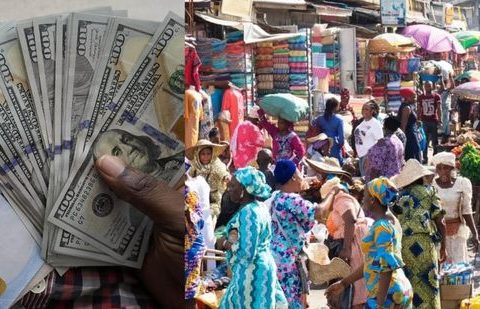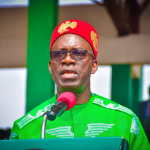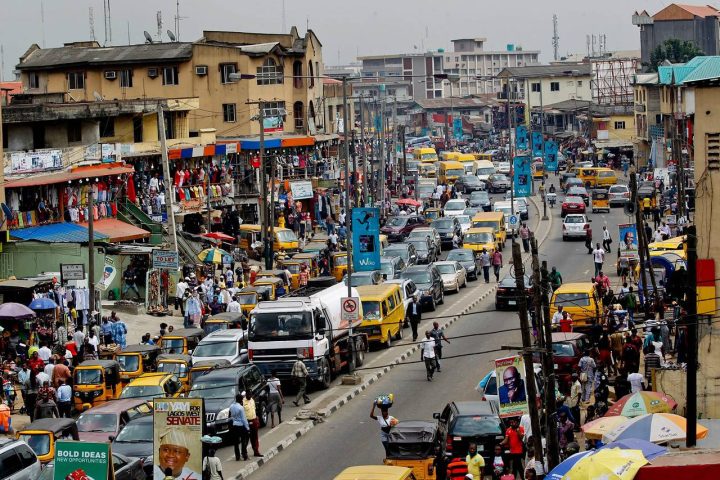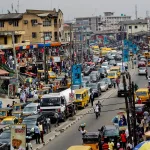By Chioma Ugo
Nigeria’s total infrastructure stock, currently estimated at just 30% of its Gross Domestic Product (GDP), underscores the critical infrastructure deficit in the country, with significant implications for economic growth and national development. The World Bank estimates that Nigeria will need to invest over three trillion dollars in infrastructure over the next 30 years. This reflects the scale of investment required to upgrade and expand critical infrastructure such as roads, railways, seaports, airports, power generation, water supply, and digital networks.
As Nigeria’s population is expected to exceed 400 million by 2050, existing infrastructure will face immense pressure. Without substantial investments, the country risks worsening traffic congestion, inefficient logistics, unreliable energy supply, and limited access to essential services—all of which can stifle economic growth and development.
Join our WhatsApp ChannelLimited investment in infrastructure in Nigeria hampers industrialization, trade efficiency, and economic productivity. Inadequate infrastructure drives up operational costs, restricts market access, and slows the movement of goods and services, stifling growth across sectors. Addressing these challenges requires not just catching up with global standards but laying the foundation for sustainable economic growth by prioritizing transportation, energy, and digital infrastructure.
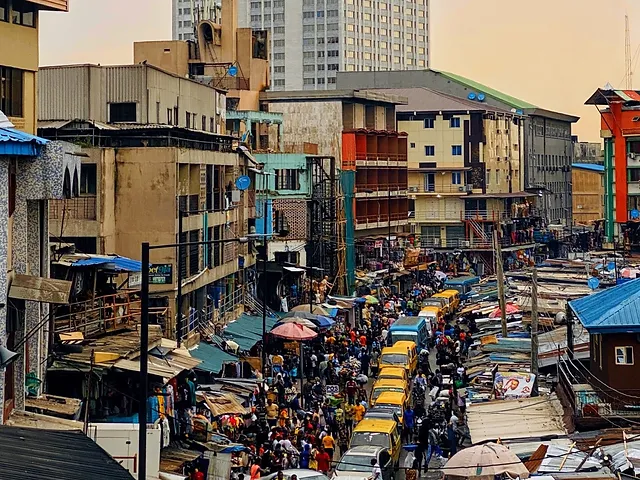
Declining tax revenues from oil production, global shifts towards renewable energy, and fluctuating oil prices create fiscal pressure. Nigeria’s rapidly growing population strains existing infrastructure and public services, with increased demand for housing, transportation, healthcare, and education outpacing supply. The country’s fragile fiscal condition, marked by high debt servicing costs, restricts the government’s capacity for infrastructure investment without accumulating unsustainable debt.
READ ALSO: Understanding Why Budgeting Is Essential For Financial Planning
Regions like the South East and North East face deeper infrastructure deficits compared to more developed areas like Lagos. Poor road networks, inadequate power supply, and limited access to modern transportation systems hinder local businesses and industries, making it difficult to attract investment or expand economic activities.
Addressing these challenges requires a diversified infrastructure investment strategy targeting underdeveloped regions. Regional governments can explore partnerships with private investors, development finance institutions, and international donors. Innovative financing mechanisms, such as infrastructure bonds and special economic zones, can help channel investments into high-impact sectors like agriculture, manufacturing, and renewable energy.
Logistics, Supply Chain, and Transportation
The inefficiencies in logistics, supply chain, and transportation systems significantly affect Nigeria’s regional economies, exacerbating disparities and limiting development. Poor transportation networks disproportionately impact rural and underserved regions, particularly in the North and Southeast, restricting access to markets and increasing post-harvest losses, which lowers incomes and raises food prices.
READ ALSO: South-east Nigeria’s Gas Pipeline Exclusion: A Legacy Of Marginalisation
Port congestion in the Southwest, especially in Lagos, delays trade and inflates costs, while inadequate investment in other coastal regions limits economic contributions. High transportation costs due to poor infrastructure and fuel price volatility inflate prices in remote areas, widening economic gaps between regions.
Infrastructure bonds offer a powerful solution for financing the modernization and expansion of Nigeria’s logistics, supply chain, and transportation industries. Funds raised through these bonds can be directed toward constructing and upgrading critical transportation networks, including highways, railways, seaports, and airports. Investments in intermodal transport systems and inland dry ports can streamline cargo movement, reduce congestion at major seaports, and improve overall supply chain efficiency.
By strategically channeling bond proceeds into these high-impact projects, Nigeria can build a more resilient, cost-effective, and technology-driven logistics and transportation network, unlocking economic growth and solidifying its position as a key regional trade hub.
Energy and Renewable Energy
Approximately 43% of Nigeria’s population lacks access to electricity, making it the country with the largest energy access deficit globally. This crisis disproportionately affects businesses, particularly SMEs, which rely heavily on diesel generators. The dependency on generators leads to annual fuel consumption exceeding $14 billion, driving up production costs and cutting profitability.
To drive industrialization and enhance the ease of doing business, substantial investment in reliable and sustainable power infrastructure is crucial. Expanding renewable energy sources such as solar, hydroelectric, and wind power offers a viable solution. For example, the South-east has significant solar energy potential, and investment in solar farms, off-grid systems, and community mini-grids could provide affordable electricity for industries and households. These investments would lower production costs, improve efficiency, and create jobs in energy infrastructure development.
Policy Reforms: Creating an Enabling Environment
Effective policy frameworks are essential for growth in Nigeria’s regional economies. There is an urgent need for policies that support entrepreneurship, business development, and job creation while addressing regional challenges. Incentivizing private sector investment in renewable energy through tax incentives, subsidies, and low-interest loans can reduce energy costs and enhance business competitiveness.
Public-private partnerships (PPPs) can fund and manage energy infrastructure projects, driving sustainability. Similar policies have been effective in countries like Kenya and India, where off-grid solar energy and energy efficiency programs have spurred business growth and productivity.
Investment in Human Capital
In regions like the North East and North West, human capital development faces significant challenges, with high poverty and low literacy rates. These regions have the highest poverty rates, with over 80% of people living below the poverty line in some areas.
In contrast, regions like the South West and South East, with better education access, have seen stronger economic performance. Strategic investment in education, skills training, and healthcare is essential for narrowing regional disparities and fostering inclusive economic growth.
Upscaling into Industrialisation
The South East’s entrepreneurial spirit is well-known, but transitioning to a more industrialized economy requires targeted policies that promote large-scale manufacturing.
To facilitate this transition, targeted policy interventions, such as tax breaks, subsidies, and access to affordable financing, are essential to support large manufacturers. Additionally, the creation of industrial parks and special economic zones (SEZs) could further encourage private sector participation, offering streamlined regulatory processes, infrastructure, and a conducive environment for business growth.

Focusing on sectors like agriculture, technology, and construction can diversify the regional economy and reduce vulnerability to economic shocks. Agricultural modernization and value-chain development, for example, can increase output, create export opportunities, and support industries like food processing.
READ ALSO: CBN And Economy: Policy Options And Projections
Ultimately, fostering innovation in these sectors and improving the business climate will help the South East region diversify its economy, making it more resilient to both domestic and international economic shifts. These targeted policy interventions are crucial for driving long-term economic growth, improving infrastructure, and enhancing the region’s competitiveness within Nigeria’s broader economy.
Conclusion
Despite current challenges, there is hope for a transformative era in Nigeria. With the right investments in infrastructure and sound policy reforms, Nigeria can unlock its immense potential, driving economic growth and enhancing the quality of life for its citizens. The journey ahead requires collective effort, a focus on sustainable development, and a forward-looking vision to ensure long-term prosperity for the region. By addressing its infrastructural and policy needs, the South-east can become a beacon of progress and a model for regional development in Nigeria.








